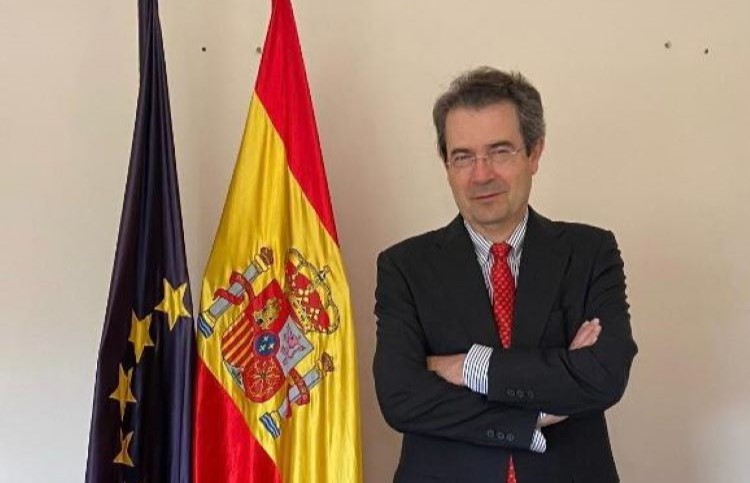The Diplomat
The Ministry of Foreign Affairs informed yesterday that King Philip VI will travel next Sunday to Brazil on the occasion of the ceremony of transfer of the presidential command to Luiz Inácio Lula da Silva, which will take place on January 1.
On this occasion, according to the Ministry’s press release, the King will be accompanied by the Second Vice President and Minister of Labor and Social Economy, Yolanda Díaz, and by the Minister of Foreign Affairs, José Manuel Albares. “The attendance of H.M. the King, the Second Vice-President and the Minister of Foreign Affairs, European Union and Cooperation at the inauguration of President Lula da Silva reaffirms Spain’s will to continue strengthening the solid ties of friendship that unite Spain and Brazil, ties that are accompanied by shared values that benefit our citizens,” the Ministry added.
Yolanda Díaz herself had already confirmed her attendance earlier this month, after meeting in Montevideo with her Uruguayan counterpart, Pablo Mieres. Several members of Unidas Podemos in the Government have joined in the past the inaugurations of Ibero-American presidents who move in the orbit of the left and the vice-president was already present at the inauguration of Gabriel Boric as head of state of Chile last March.
Yolanda Díaz celebrated Lula da Silva’s victory on the same day that the result of the second round of the elections was known, in Brazil. “The #BrasilDaEsperança has won! The Brazilian citizenry has chosen to look to the future. It has chosen Lula to take care of democracy. Now, we will work together for a Latin America and Europe of social and climate justice,” he said on social networks.
The King represents Spain at the inaugurations of Ibero-American presidents, a task that he has been assuming since 1996 when he was still Prince of Asturias. This is the eleventh participation of Philip VI in the inauguration of an Ibero-American president since his arrival to the Throne in 2014, since he was in 2018 in that of the Mexican Andrés Manuel López Obrador; in 2019 in that of the Panamanian Laurentino Cortizo; in 2020 in those of the Uruguayan Luis Lacalle Pou and the Bolivian, Luis Arce; in 2021 in those of Ecuador’s Guillermo Lasso Mendoza and Peru’s Pedro Castillo (recently dismissed and arrested after an attempted self-coup); and in 2022 in those of Honduras’ Xiomara Castro, Chile’s Gabriel Boric, Costa Rica’s Rodrigo Chaves and Colombia’s Gustavo Petro. Lula’s will be the first in 2023.
The leftist Lula da Silva Lula, of the Workers’ Party (PT), won last October 30 over the far-right and outgoing president Jair Bolsonaro in the second round of the presidential elections. Lula, 77 years old, will return to the Presidency of Brazil twelve years after he last held office between 2003 and 2010. He is the first president in Brazil’s republican history to serve three terms as head of state. It is also the first time that the incumbent president has not been re-elected.
Following his victory, the Government of Spain declared that his return to the presidency “signifies the beginning of a new political stage in Brazil guided by social justice, equality and against climate change.” “Spain will continue to promote its bilateral strategic partnership with Brazil, in favor of the welfare and prosperity of our citizens, based on the close economic, demographic, cultural and historical ties that unite our peoples and their deep shared values,” it continued. “Likewise, we will work for concerted action in the multilateral and Ibero-American spheres to jointly face important global challenges,” it concluded.







